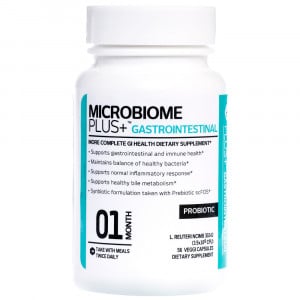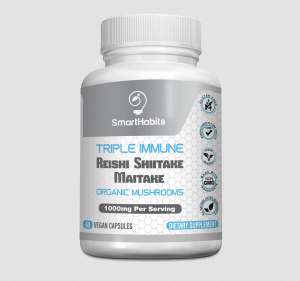- Home
-
Cleansing & Wellness
- Top Sellers
- Allergy Relief
- Anti-Aging
- Ayurveda
- Bladder Support
- Blood Pressure Support
- Blood Sugar Control
- Bone Strength
- Brain Support
- Candida & Parasite Cleansing
- Cardiovascular Support
- Cholesterol Support
- Cleansing / Detox
- Cold Sore Relief
- Cough, Cold & Flu
- Digestion & Enzymes
- Ear Support
- Eye Support
- Headache / Hangover Relief
- Homeopathic
- Immune Support
- Inflammation
- Joint / Pain Relief
- Kidney Support
- Liver Support
- Lung Support
- Mood Enhancers & Stress Relief
- Pet Supplements
- Prebiotics
- Probiotics
- Sexual Stimulants
- Sleep Aids
- Smoking Cessation
- Sports Nutrition
- Diet & Energy
-
Vitamins & Nutrition
- Top Sellers
- Acai Berry
- AHCC (Active Hexose Correlated Compound)
- Amino Acids
- Antioxidants
- Bee Products
- Children's Health
- CoEnzyme Q10
- DMAE
- Essential Fatty Acids
- Fiber
- Food Products
- GABA
- Ginseng
- Green and Whole Foods
- Hyaluronic Acid
- Maca
- Melatonin
- Men's Health
- Minerals
- Multi-Vitamins / Minerals
- Mushrooms
- Stevia and Other Sweeteners
- Vitamins
- Women's Health
- ZMA
- Personal Care
- blog
- Microbiome Plus+
- Smart Habits
Details
Helps relax muscles and aids in fighting depression. Essential for the maintenance of RNA & DNA. Promotes cardiovascular health. Works with Vitamin B6 in alleviating PMS. Aids in tissue respiration. Assists in the utilization of Vitamin B6 and Vitamin E.
SIGNS OF DEFICIENCY: Nervousness and muscle tics and twitches, apprehension, brain and body exhaustion, confusion and irritability, disorientation, irregular heartbeat, poor circulation and pale complexion, convulsions, seizures, tremors and glandular disturbances.
CHARACTERISTICS: Magnesium is an essential mineral nutrient. This vital mineral is needed in over 300 of the body's enzymes. Virtually all bioenergetic processes require magnesium. It plays an important role in bone formation, stress, exercise, depression, PMS and chronic fatigue.
Magnesium is absorbed from the small intestine. It is poorly absorbed from foods, less than 35% of the ingested amount. Only 25% - 35% of non-chelated magnesium ingested is absorbed and this can often have an adverse effect on the bowel.
FUNCTION: The body must modify mineral salts to assimilate the mineral. Magnesium salts, through complex digestive and transport processes, becomes magnesium amino acid chelate. The chelated magnesium is then metabolized and the magnesium mineral is released into the blood. Many people are unable to perform this complex digestive function. Therefore, non-chelated magnesium has little biological effect.
Asthma and emphysema
A population-based clinical study of over 2,500 children aged 11 - 19 years found that low dietary magnesium intake may be associated with a risk of developing asthma. The same was found in a group of over 2,600 adults aged 18 - 70. In addition, some clinical studies suggest that intravenous and inhaled magnesium can help treat acute attacks of asthma in children aged 6 - 18 as well as adults. However, evidence from other clinical studies report that long-term oral magnesium supplementation does not lead to improved control in adult asthma.
Attention deficit/hyperactivity disorder (ADHD)
Some experts believe that children with attention deficit/hyperactivity disorder (ADHD) may be exhibiting the effects of mild magnesium deficiency (such as irritability, decreased attention span, and mental confusion). In one clinical study of 116 children with ADHD, 95% were magnesium deficient. In a separate clinical study, 75 magnesium-deficient children with ADHD were randomly assigned to receive magnesium supplements in addition to standard treatment or standard treatment alone for 6 months. Those who received magnesium demonstrated a significant improvement in behavior, whereas those who received only standard therapy without magnesium exhibited worsening behavior.
These results suggest that magnesium supplementation, or at least high amounts of magnesium in the diet, may prove to be beneficial for children with ADHD.
Depression
Major depression is a mood disorder characterized by a sense of inadequacy, despondency, decreased activity, pessimism, and sadness where these symptoms severely disrupt and negatively affect the person's life. Clinical studies have found that dietary deficiencies of magnesium, coupled with excess calcium and stress may cause many cases of other related symptoms, including agitation, anxiety, irritability, confusion, sleeplessness, headache, confusion, and hyperexcitability.
Diabetes
Type 2 diabetes is associated with low levels of magnesium in the blood. A large clinical study of over 2000 people found that higher dietary intake of magnesium may protect against development of type 2 diabetes. Magnesium was found to improve insulin sensitivity in these people, reducing the risk of developing type 2 diabetes. Other clinical studies have found similar results, especially in the elderly. Magnesium deficiency in diabetic patients may decrease their immunity, making them more susceptible to infections and illnesses.
Fibromyalgia
Results of a preliminary clinical study including 24 people with fibromyalgia suggest that a proprietary tablet containing both malic acid and magnesium may improve pain and tenderness associated with this health condition when taken for at least 2 months. Others suggest that the combination of calcium and magnesium may be helpful for some people with fibromyalgia.
Heart disease
Magnesium is essential to heart health. This mineral is particularly important for maintaining a normal heart rhythm and is often used by physicians to treat irregular heartbeat (arrhythmia). People with congestive heart failure (CHF) are often at particular risk for developing an arrhythmia. For this reason, your doctor may determine that magnesium should be a part of the treatment of CHF.
High blood pressure
Eating low-fat dairy products along with lots of fruits and vegetables on a regular basis is associated with lower blood pressure. All of these foods are rich in magnesium as well as calcium and potassium. Singling out which of these nutrients is responsible for lowering blood pressure is difficult. A large clinical study of over 8,500 women found that a higher intake of dietary magnesium may decrease the development of high blood pressure in women.
Human immunodeficiency virus (HIV)
Several clinical studies suggest that between 30 - 65% of people with human immunodeficiency virus (HIV) have low levels of magnesium. Those with low levels may be more likely to complain of fatigue (excessive tiredness), diminished energy, and confusion. Whether magnesium supplements would improve these symptoms in people with HIV, however, has not been evaluated.
Inflammatory bowel disease (IBD)
People with inflammatory bowel disease (IBD, particularly ulcerative colitis) may have low magnesium levels. In addition, there is some early clinical evidence that dietary magnesium supplements may be of some value for preventing IBD flare-ups.
Infertility and miscarriage
A small clinical study of infertile women as well as women with a history of miscarriage found that low levels of magnesium may impair reproductive function and increase the risk for miscarriage. The authors of the study suggest that one aspect of the treatment of infertility (particularly in women with a history of miscarriage) should include magnesium along with selenium. More research in this area is needed.
Menopause
Because magnesium improves the absorption of calcium from the gastrointestinal tract, some practitioners suggest that women take calcium and magnesium together at a ratio of 2:1, particularly around the time of menopause. This helps prevent osteoporosis (loss of bone mass).
In addition, as estrogen levels drop during menopause, magnesium levels seem to diminish as well. For this reason, magnesium may also help to relieve some menopausal symptoms such as hot flashes, depression, and insomnia. More research is needed.
Migraine headache
Magnesium levels tend to be lower in those with migraine headaches, including children and teenagers, when compared to those with tension headaches or no headaches at all. In addition, a few clinical studies suggest that magnesium supplements may decrease the length of time that one suffers from a migraine and reduces the amount of medication needed.
Osteoporosis
Calcium, vitamin D, magnesium, and other micronutrient deficiencies are believed to play a role in the development of osteoporosis. Adequate intake of calcium, magnesium, and vitamin D coupled with overall proper nutrition and weight-bearing exercise throughout childhood and adulthood are the primary preventive measures for this condition, in both men and women.
Preeclampsia and eclampsia
Intravenous magnesium sulfate is commonly used to prevent complications from preeclampsia and eclampsia. Preeclampsia is a condition characterized by a sharp rise in blood pressure during the third trimester of pregnancy. Women with preeclampsia may develop seizures, which is then called eclampsia. Magnesium, administered in the hospital intravenously (IV or into the veins), is the treatment of choice to prevent or treat seizures associated with eclampsia.
Premenstrual Syndrome (PMS)
Scientific evidence and clinical experience suggest that magnesium supplements may help relieve symptoms associated with PMS, particularly bloating, insomnia, leg swelling, weight gain, and breast tenderness. Preliminary information suggests that magnesium may be helpful for alleviating mood swings as well.
Stroke
Population-based information suggests that people with low magnesium in their diet may be at greater risk for stroke. Some preliminary clinical evidence suggests that magnesium sulfate may be helpful in the treatment of a stroke or transient ischemic attack (TIA, or a temporary disturbance of blood supply to an area of the brain). More research is needed to know for certain if use of this mineral following a stroke or TIA is helpful.
Other
A small clinical study including only 10 patients found that magnesium improved insomnia related to restless legs syndrome (a disorder characterized by uncomfortable sensations in the legs, which are worse during periods of inactivity or rest or while sitting or lying down). In another study including 42 patients undergoing abdominal hysterectomy, those who received intravenous magnesium sulfate before and after surgery required fewer pain-killers, experienced less discomfort, and slept better after surgery compared to those who received placebo.
Magnesium levels were also reported lower in alcoholics and those addicted to heroin. More studies are needed in using magnesium for addictive disorders.
Additional Information
| ProductSKU | 733739012906 |
|---|---|
| Manufacturer | Now |
| Per Container: | 100 |
| Form | tablets |
| Serving Size | 2 tabs |
| Ingredients | Magnesium 400 mg 100 |
| Other Ingredients | Cellulose, Stearic Acid (vegetable source), Croscarmellose Sodium, Magnesium Stearate (vegetable source) and Vegetable Coating. Vegetarian Formula. |
| Directions | As a dietary supplement, take two tablets daily, preferably with meals. |
| Warning | . |
-
 I started taking magnesium because I didnt think I was getting enough. I read somewhere that it may help with symptoms of PMS. I... review by Liv on 1/18/2009
I started taking magnesium because I didnt think I was getting enough. I read somewhere that it may help with symptoms of PMS. I... review by Liv on 1/18/2009I started taking magnesium because I didnt think I was getting enough. I read somewhere that it may help with symptoms of PMS. I have to say that this is a great supplement and it has worked well for me. I dont experience any symptoms before my period, it has decrease my sugar cravings, muscle cramps and i dont feel as fatigued as before. Wonderful product.






